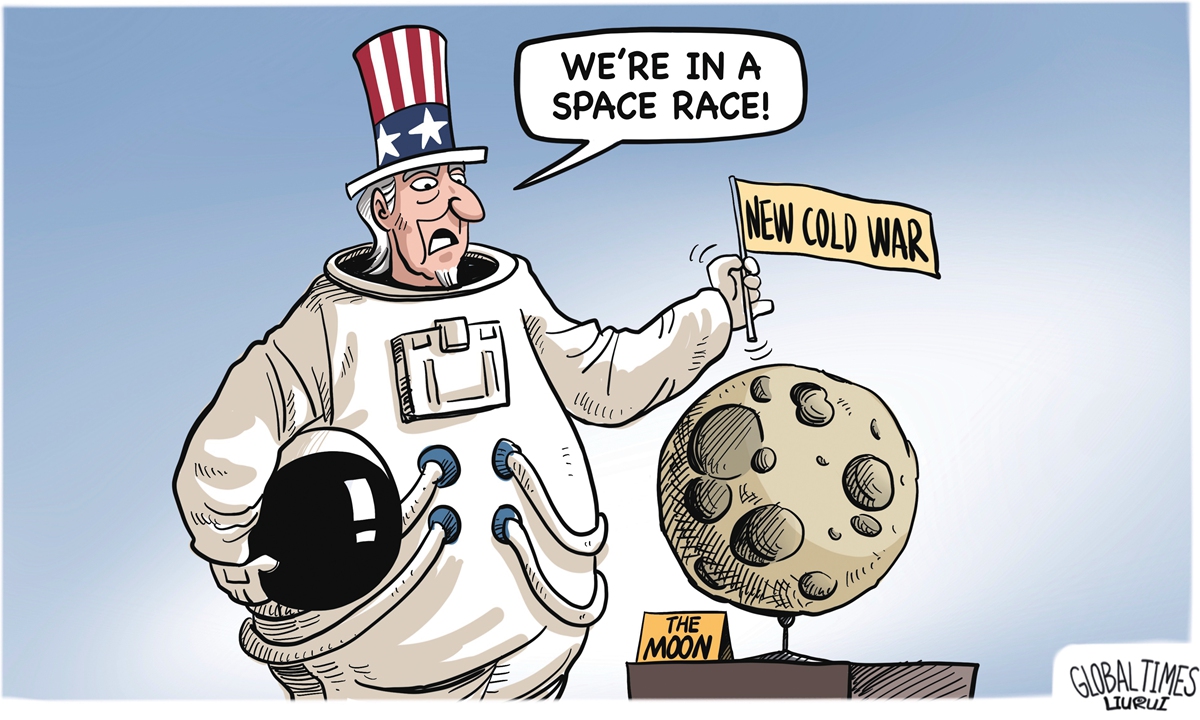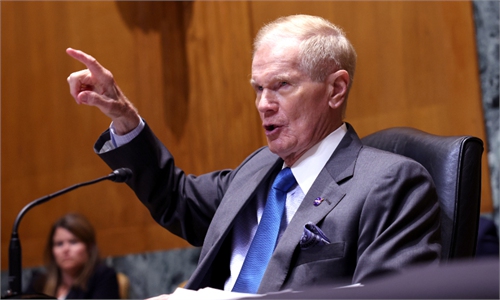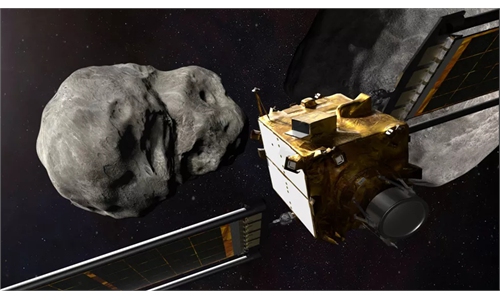NASA chief’s hawkish remarks another pathetic attempt, exposes US own hegemony: experts

Illustration: Liu Rui/GT
Chinese experts battered the latest round of attacks from NASA chief Bill Nelson, saying his smearing remarks against China's space development are yet another ridiculous and pathetic attempt to hype the "China threat" theory to get more funding, which only exposes the US' own hegemonic and colonial ambitions.
In an interview with POLITICO, Nelson said the race to the moon between the US and China is getting tighter and the next two years could determine who gains the upper hand.
He warned that Beijing could try to "dominate" the locations they step foot on the lunar surface or even try to "keep the US out," while citing the Nansha Islands as an "example" to prove his point.
The remarks angered Chinese researchers and commentators who have repeatedly made clear that China's exploration of the moon is dedicated to the advancement of humanity.
"Being a former astronaut himself, it is pathetic that he would play the trick of a thief crying 'stop thief,'" Song Zhongping, a space analyst and TV commentator, told the Global Times on Tuesday.
It is an established fact written into the United Nations Outer Space Treaty and others that the moon does not belong to any country in the world, while the Nansha Islands are indisputably part of China's territory. Comparing these two shows that Nelson does not even understand international law or the Outer Space Treaty, Song noted.
Nelson's attempt in a way reflects the mentality that the US wants to colonize the moon and consolidate its own hegemony in space, analysts said, evident in the new space version of an "Enclosure Movement" of the Artemis program, which gathered "like-minded" partners such as Canada, Japan and Europe but excludes China and Russia.
Nelson's remarks failed even to convince its own scholars. Victoria Samson, Washington director of the Secure World Foundation, said she is dubious about the "moon brawl," noting that China, like the US, is a party to the Outer Space Treaty, which bars nations from making territorial claims on any celestial body, including the moon, POLITICO reported.
It will be difficult for any nation to maintain a long-term human presence in deep space, she said, which makes the claims more unrealistic.
Nelson's remarks followed US congressional approval to fund NASA with $24.5 billion in fiscal 2023, about half a billion dollars less than US President Joe Biden had requested.
While still expressing "confidence" that the next moon mission could happen as planned to send a crew into the moon's orbit by 2024, he admitted that the agency is "under intense pressure" because it has been forced, as a cost-saving measure, to reuse all the avionics inside the Artemis I capsule for Artemis II.
Huang Zhicheng, a Chinese expert in aerospace science and technology, told the Global Times on Tuesday that NASA, with a lot on its plate including the operation of the International Space Station, the Artemis program and deep-space exploration projects, is hyping the "China threat" theory to get more money, as the just-concluded Space Launch System is already years behind schedule and billions of dollars over budget.
There is still a huge gap in the budget and many problems to solve for the US' manned moon landing to succeed, Huang said.
Specifically, Boeing that is undertaking the rocket launch tasks for the Artemis program has a chaotic management and it is hard to get the tasks done on time. For another thing, the moon lander being developed by SpaceX is yet to achieve its designated progress, and if the lander cannot be completed successfully this year, it may further delay the entire project, Huang noted.
Publicly attacking China's space program has become routine for NASA in the past few months. In December, the NASA chief accused China of being "one of the very few nations" that would not be partners with the US and that it is being "very secretive" in terms of space programs. In September, Nelson accused China of lacking needed transparency over issues. In July, the NASA chief blatantly claimed that China is "trying to occupy the moon." In May, he said that China stole the US' space technology.
"These accusations fired by NASA are unfounded and unjustified," Song said. "China has always had a cooperative and open attitude in the space sector."


